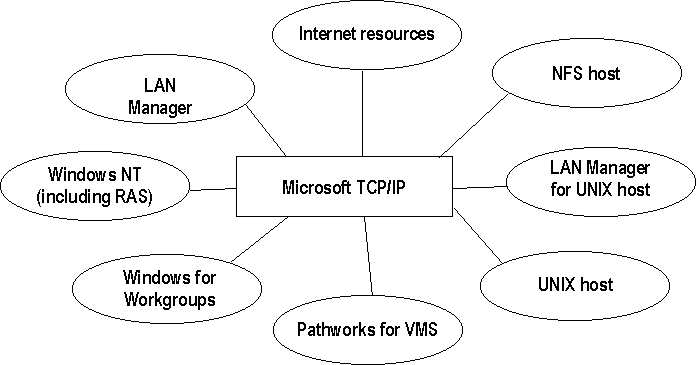
Because most modern operating systems (in addition to Windows NT) support TCP/IP protocols, an internetwork with mixed system types can share information using simple networking applications and utilities. With TCP/IP as a connectivity protocol, Windows NT can communicate with many non-Microsoft systems, including:

Figure 10.3 Microsoft TCP/IP Connectivity
Microsoft TCP/IP provides a framework for interoperable heterogeneous networking. The modular architecture of Windows NT networking with its transport-independent services contributes to the strength of this framework. For example, Windows NT supports these transport protocols, among many others:
Other transport protocols provided by third-party vendors, such as DECnet and OSI, can also be used by Windows NT networking services.
Windows NT provides standard network programming interfaces through the Windows Sockets, RPC, and NetBIOS interfaces. Developers can take advantage of this heterogeneous client-server platform to create custom applications that will run on any system in the enterprise. An example of such a service is Microsoft SQL Server, which uses Windows Sockets 1.1 to provide access to NetWare, MS-DOS–based, Windows NT, and UNIX clients.